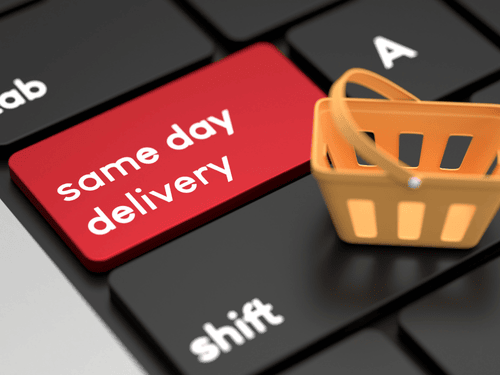Strategic carriers function as logistics partners when their goals match those of a company while meeting both performance and technical capability requirements. The delivery systems benefit from logistics service providers who do significant work beyond transportation functions to enhance the fulfillment method. Delivery carriers serve as essential components of the extensive logistics network while playing a crucial role toward achieving successful deliveries.
The delivery process speed and precision generates trust amongst customers which leads to their continued business with your company. Operational success enables brands to reduce their spending and eliminate adverse customer reviews resulting from delivery delays. Enhancements in logistics operations have become necessary since they determine corporate survival and expansion prospects.
The Role of Carriers in Modern Fulfillment
From Last Mile to Linehaul: Carrier Impact at Every Stage

Every delivery journey involving both domestic and international distances contains various transport stages where carrier organizations affect shipment velocity as well as delivery accuracy. The transportation service providers affect delivery speeds at every stage including warehouse retrieval through end-of-route delivery. The completion of the whole fulfillment process depends on carrier performance without any disruptions.
How Carrier Performance Affects CX, Speed, and Cost
Customers detect delayed deliveries in addition to absent tracking information and damaged package handling. The issues create negative brand impressions that might cause customers to pick different vendors. A carrier system with high performance levels raises customer satisfaction measures and manages fulfillment expenses effectively.
The Difference Between Standard and Strategic Carrier Partnerships
Standard carriers provide general delivery solutions with minimal flexibility or technology integration features to their services. The services that strategic carriers offer will adjust to meet your specific business requirements as well as your technology framework. The distinct capability allows businesses to conduct operations with better reliability and sustain longer supply chain adaptations.
Key Benefits of Working with Strategic Carriers
Faster Shipping Without Higher Costs

The optimal routing system provided by strategic carriers reduces delivery time while offering pre-agreed prices. The major cost savings occur through planning collaboration and future volume forecasting combined with system connection practices. The combination of quick service delivery happens alongside cost-effective pricing.
Reduced Risk of Delivery Failures and Delays
The utilization of proactive logistics relationships helps partners avoid typical mistakes involving delivery issues and imprecise delivery locations. The systems of these transportation networks deliver stable operation during time-critical situations. The protection of your brand reputation stems from minimized late deliveries.
Enhanced Visibility and Tracking Capabilities
Your fulfillment system connects to real-time updates that modern carriers generate. The tracking capabilities also lead to better customer satisfaction by providing quick delivery reports which in turn improves internal tracking systems. A transparent supply chain process enables buyers to experience a trouble-free post-purchase experience.
Better Support for International Shipping
Cross-border shipping operations need exact handling of customs requirements together with international duty regulations and local legal frameworks. Through their strategic services carriers offer both documentation preparation assistance and local delivery organization. The delivery process of international orders receives smooth predictable operation through these arrangements.
Data-Driven Route Optimisation and Forecasting
Carriers implement advanced logistics software which enables them to maximize both speed and efficient delivery routes. Logistics software instruments help carriers save fuel while removing unneeded stops thereby reducing delivery periods. The strategic choice leads businesses to receive dependable and foreseeable fulfillment operations.
Selecting the Right Carrier Partners
What to Look for in a Strategic Carrier

Your selected carriers need to exhibit three main characteristics including rock-solid reliability coupled with adaptable service capabilities while maintaining compatibility with current and future systems. Test their capability by understanding how they will manage the typical number of orders they process across your regions and during different seasonal demand levels. The lasting compatibility between your company and its choices outweighs bargain prices in the beginning.
Regional Strengths: Matching Carriers to Delivery Zones
The operating effectiveness of carriers depends on their geographical zones as well as local infrastructure and concrete resource distribution models. Companies should choose partners who excel in delivering orders to their main markets for better delivery performance. A location-specific carrier selection leads to enhanced control of fulfillment performance.
Evaluating Carrier SLAs, Technology, and Scalability
Carrier service-level agreements specify their performance criteria which includes delivery timeliness rates together with their response time to customer issues. Every service agreement must correspond with automated systems that offer scalability. The choice of technology between carriers is crucial because you need those who provide easy API integration and real-time update capabilities.
Strategic Carrier Relationships in Action
Using Purpose-Built Carriers for Speed and Control

Express delivery services and region-specific logistics form the focus of particular carriers. Businesses achieve better niche customer satisfaction when they select appropriate delivery carriers. A strategic match between carriers and delivery expectations results in continuous performance reliability throughout the delivery process.
Diversifying Carriers to Balance Load and Risk
Having various transportation providers minimizes operational dangers that stem from putting all trust in one single shipping partner. When companies send their shipments through multiple partner carriers they achieve better adaptability in case of disruptions and seasonal market upsurges. Diversification enables businesses to make better evaluations between service levels and rates.
Building Stronger Fulfillment Through Carrier Planning
A carrier relationship proves successful when businesses implement ongoing plans and deliver performance reviews and adapt their approaches accordingly. The performance assessment of businesses enables them to refine shipping operations and enhance their cost management systems. The combination of strategic collaboration produces mutual growth opportunities which leads to enhanced logistical results.
Tech Integration: Syncing Carriers into the Fulfillment Stack
Why API-First Carrier Networks Matter

API-enabled carriers automate the connection to fulfillment software which reduces traditional manual operations. Instant label generation occurs while status updates and exception handling become possible through this connection. The system results in more efficient operations combined with lower opportunities for human mistakes.
Role of WMS, TMS, and OMS in Carrier Coordination
The operation results in successful logistics when warehouse, transportation and order management systems operate as one cohesive system. The connection of carriers to these systems establishes integrated procedures which span from initial order initiation to complete delivery operations. A well-integrated system delivers faster response times together with better accuracy of results.
Automating Label Generation, Rate Selection, and Tracking Updates
The real-time factors such as weight and distance determine which shipping method carrier automation software picks through its selection process. The system produces shipping labels that follow all regulations while handling package tracking automatically. The automation functions deliver faster product delivery and minimize avoidable mistakes.
Challenges of Poor Carrier Choices
Common Pitfalls: Hidden Fees, Inflexibility, and Manual Processes

Any selection of an improper shipping carrier results in unexpected fees alongside restricted scheduling windows as well as additional manual labor requirements. Ordinary problems tend to accumulate continually which diminishes fulfillment performance capabilities. When prices remain unclear your business process will face delays along with any problems requiring resolution.
How Inefficiencies Compound with Scale
Greater order volume multiplication intends that little operational inefficiencies evolve into major operational roadblocks. Operating costs increase alongside reduced profit margins when delays occur combined with missed pickups and tracking errors. A company needs carriers who understand how to scale their operations along with your organization.
The Cost of Switching Too Late
When organizations delay the replacement of substandard carriers it causes permanent operational harm. Unreliable delivery service leads customers to leave and fulfillment personnel experience difficulties with unreliable service. The prompt assessment along with quick implementation helps to avoid extensive logistics issues.
Strategic Carrier Networks for SMEs vs. Enterprises
What SMEs Need from Their First Carrier Partners

Small businesses need carriers that offer fair pricing, responsive service, and easy onboarding. A strong logistics foundation gives SMEs the confidence to grow without worrying about last-mile failures. Simplicity and support matter more than extensive coverage at the start.
When to Add or Replace Carriers as You Scale
As businesses expand, logistics needs change and carriers must keep up. Regularly reviewing performance, rates, and service options helps determine if it’s time to switch or expand partnerships. Growth requires proactive adjustment, not reactive corrections.
How Enterprises Leverage Multi-Carrier Routing for Cost Savings
Larger businesses use intelligent routing tools to compare carriers in real time. This ensures each order is shipped via the most cost-effective and reliable path. It also helps manage large shipping volumes without sacrificing delivery standards.
Vareya’s Approach to Carrier Strategy
A strong fulfillment performance depends heavily on smart carrier decisions. Choosing partners that align with volume trends and delivery promises makes consistent success possible. Reliable carriers are the backbone of high service levels.
Strategic carriers bring automation, scheduling precision, and tech integration that remove friction. These operational improvements speed up shipping while cutting down on manual coordination. Consistent results allow for better planning and long-term stability.
The Future of Carrier-Fulfillment Synergy
Trends: Same-Day Delivery, Sustainable Shipping, and AI Routing

Modern customers want delivery services that meet both speed requirements and environmental responsibility standards. Carrier operations transform through sustainable fleet implementations as well as intelligent route optimization solutions and wider same-day service networks. Current methods of support by carriers in real-time operations will receive further development through AI technologies.
The Rise of Carrier Flexibility in a D2C-Heavy Market
Firms that sell directly to consumers need simple and inexpensive delivery services that maintain full shipping clarity. Companies operating flexible delivery options together with innovative technology solutions possess high market demand. Having flexible delivery options allows companies to provide premium customer service despite operating without complex hardware systems.
Why the Right Carrier Mix Is a Growth Lever
Business growth accelerates rapidly through networked carrier systems that deliver comprehensive services for various types of customer requirements. These three factors transform from operational hindrances into beneficial qualities. Instead of restricting brand success, fulfillment functions as an advancement element.
Conclusion
Final Thoughts on Optimising Fulfillment with Strategic Carriers
Your fulfillment process runs through every stage because of your strategic carrier selection. Successful carrier selection offers enterprises both operational growth and customer satisfaction together with reduced errors. Companies which choose highly competent logistics partners develop operations that stand stronger against market fluctuations.
Your evaluation of existing carrier performance must start with the review of rate structures and delivery accuracy along with current carrier performance. Install automated solutions to handle routing processes and label generation and tracking procedures for efficient bottleneck management. Your carrier selection must receive ongoing optimization to adapt to market changes efficiently.

